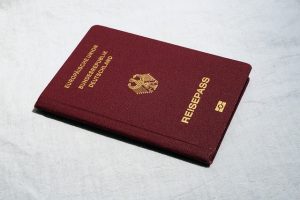Translation services for UK Research and Development (R&D) documents are critical due to the specialized language and technical terminology involved, which demands high precision to avoid misinterpretation and its subsequent consequences. These translations must be executed by professionals with dual expertise in both science or technology and linguistics to ensure semantic accuracy and cultural sensitivity. Advanced translation technologies, rigorous quality assurance processes, and translation memory systems, coupled with R&D-specific glossaries, are employed to guarantee consistency and reliability, making the translations credible for experts, regulatory bodies, and international partners. The goal is to accurately convey the original document's intent across languages, thereby facilitating effective communication and supporting the advancement of global research and development initiatives. These specialized translation teams are a cornerstone in the dissemination of British innovation on the world stage, ensuring that UK R&D institutions maintain their integrity and reputation internationally through accurate and contextually appropriate translations.
Navigating the intricate world of UK Research and Development (R&D) necessitates precise communication, a task critically dependent on the accuracy of translations. In an era where global collaboration is paramount for scientific advancement, how do translation services for UK R&D documents measure up in delivering exactness? This article delves into the reliability of these translations, exploring the essential role of specialized translation teams and the key factors that contribute to high-quality outputs. Through case studies highlighting successful translations’ impact on global R&D initiatives, we will assess the precision of UK R&D document translations and underscore their significance in maintaining the integrity of research data across languages.
- Assessing the Precision of UK R&D Document Translations with Professional Services
- The Role of Specialised Translation Teams in Accurate UK R&D Documentation
- Key Factors Ensuring High-Quality Translations for Research and Development Documents
- Case Studies: Successful Translations of UK R&D Documents and Their Impact on Global Collaboration
Assessing the Precision of UK R&D Document Translations with Professional Services

When it comes to translating UK Research and Development documents, precision and accuracy are paramount. The stakes are high in R&D, where nuanced terminology and technical jargon can significantly impact the outcome of scientific endeavours. To ensure the integrity of these documents is maintained across different languages, turning to professional translation services for UK Research and Development Documents is a prudent choice. These specialized services employ expert linguists with a background in science or technology, ensuring they possess both the language and domain expertise necessary to deliver translations that are not only semantically accurate but also culturally relevant.
The reliability of these translations can be attributed to a combination of advanced translation technologies, rigorous quality assurance processes, and the human touch of seasoned translators. By leveraging translation memory systems and glossaries tailored for R&D contexts, these services consistently produce high-quality outputs that stand up to scrutiny from academic peers, regulatory bodies, and international collaborators. The end result is a set of documents that accurately convey the original content’s intent, fostering clear communication and facilitating global innovation in the research and development sector.
The Role of Specialised Translation Teams in Accurate UK R&D Documentation

The translation of UK Research and Development (R&D) documentation demands a high level of precision and expertise, which is where specialised translation teams come to the forefront. These teams are not general linguists but subject-matter experts who possess a profound understanding of both the language and the R&D domain. Their role is pivotal in ensuring that technical terminology, complex concepts, and nuanced details within the documents are accurately conveyed across different languages. The precision required in R&D documentation—encompassing everything from experimental methodologies to data analysis and results—means that translation services for UK R&D documents must go beyond mere word-for-word transcription. Specialised teams employ their sector-specific knowledge to adapt content appropriately, maintaining the integrity of the original material while making it accessible to a global audience. This is crucial not only for the advancement and dissemination of scientific knowledge but also for maintaining the trust and credibility of UK R&D institutions on an international stage.
In the realm of UK R&D, translation is not just about language; it’s about communication. Specialised translation teams ensure that the subtleties of context, the critical nature of experimental data, and the implications of research findings are accurately rendered in the target language. This level of fidelity in translation is imperative for maintaining the accuracy and effectiveness of UK R&D documentation. By leveraging the expertise of professionals who understand both the technicalities of R&D and the linguistic nuances at play, these services provide a critical link between British innovation and its global application, ensuring that UK R&D remains at the forefront of scientific discovery and technological advancement.
Key Factors Ensuring High-Quality Translations for Research and Development Documents

When it comes to UK Research and Development (R&D) documents, accuracy and precision are paramount. High-quality translations are crucial for maintaining the integrity of research data and facilitating effective collaboration across borders. To ensure top-tier translations for R&D documents, several key factors must be considered. Firstly, specialized translation services for UK R&D Documents should employ translators with a profound understanding of both the source and target languages, as well as the scientific context in which the content resides. These experts must have a background in relevant fields such as biotechnology, pharmaceuticals, or engineering to accurately convey complex concepts and technical terminologies.
Moreover, the chosen translation services should implement advanced translation technology, combining it with human expertise to ensure consistency, coherence, and contextual relevance across all translated materials. Utilizing Computer-Aided Translation (CAT) tools allows for the application of terminology databases that are specific to R&D, which helps maintain terms and phrases consistently throughout the document. Additionally, these services should adhere to industry-standard quality management systems, such as ISO 17100, ensuring a systematic approach to translation processes, including project planning, execution, monitoring, and post-project assessment. This commitment to quality, coupled with the use of technology and specialized expertise, sets the foundation for high-quality translations that are indispensable in the R&D sector.
Case Studies: Successful Translations of UK R&D Documents and Their Impact on Global Collaboration

UK-based research and development (R&D) organisations often operate at the cutting edge of innovation, pushing the boundaries of science and technology. The accuracy and clarity of translations in this context are paramount, as they directly influence the potential for global collaboration and the successful dissemination of knowledge. For instance, a pharmaceutical company developing a novel treatment required detailed clinical trial data to be translated from English into multiple languages for international regulatory submission. Utilising specialist translation services for UK R&D documents, the information was accurately conveyed, leading to expedited approval processes in key markets and the successful deployment of the treatment globally. Similarly, a leading UK engineering firm specialising in renewable energy technologies needed to translate complex technical drawings into several languages for their partners abroad. The precision of these translations facilitated seamless integration of the designs into international projects, showcasing the importance of expert translation services in the R&D sector. These case studies underscore the impact of reliable and accurate translations on global scientific and technological advancements, highlighting the necessity for dedicated UK R&D document translation services that can navigate the complexities of language while maintaining the integrity of the original content.
In conclusion, the accuracy of translations for UK Research and Development documents is paramount in facilitating global collaboration and innovation. The article has highlighted the importance of engaging professional translation services, emphasizing the role of specialised translation teams who are adept at navigating the complexities inherent in R&D documentation. By considering key factors such as subject matter expertise, technical terminology accuracy, and cultural nuances, these services ensure high-quality translations that maintain the integrity of the original content. The case studies provided serve as testament to the positive impact precise translations can have on international research endeavours. For organisations in the UK’s R&D sector looking to expand their reach and effectiveness globally, investing in reliable translation services for UK Research and Development Documents is a strategic imperative.
